Related Research Articles

The Académie des Inscriptions et Belles-Lettres is a French learned society devoted to history, founded in February 1663 as one of the five academies of the Institut de France. The academy's scope was the study of ancient inscriptions (epigraphy) and historical literature.
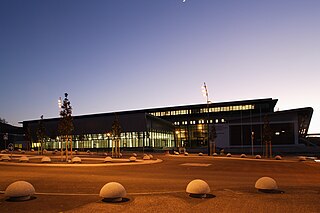
École nationale supérieure des mines de Saint-Étienne, also called École des Mines de Saint-Étienne or simply Mines Saint-Étienne and commonly abbreviated EMSE is a prestigious French graduate engineering school training engineers and carrying out industry-oriented research. Its function is to support the development of its students and of companies through a range of courses and fields of research, from the initial training of generalist engineers ingénieurs civils des mines, to PhD teaching; from material sciences to micro-electronics via process engineering, mechanics, the environment, civil engineering, finance, computer science and health engineering.
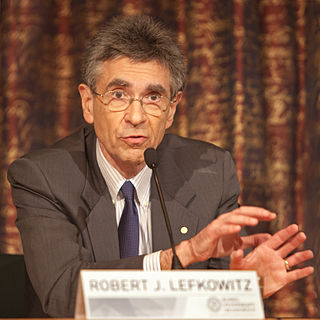
Robert Joseph Lefkowitz is an American physician and biochemist. He is best known for his discoveries that reveal the inner workings of an important family of G protein-coupled receptors, for which he was awarded the 2012 Nobel Prize for Chemistry with Brian Kobilka. He is currently an Investigator with the Howard Hughes Medical Institute as well as a James B. Duke Professor of Medicine and Professor of Biochemistry and Chemistry at Duke University.
Nabil G. Seidah, is a Canadian Québécois scientist. Born in Egypt, he was educated at Cairo University, and subsequently at Georgetown University where he obtained his Ph.D. in 1973. He emigrated to Canada and has been working at the Clinical Research Institute of Montreal (IRCM) since 1974. He is the director of the laboratory of Biochemical Neuroendocrinology. He discovered and cloned seven of the nine known enzymes belonging to the convertase family. During this period, he also greatly contributed to demonstrating that the proteolysis by the proprotein convertases is a wide mechanism that also concerns “non-neuropeptide” proteins such as growth factors, α-integrins, receptors, enzymes, membrane-bound transcription factors, and bacterial and viral proteins. In 2003, he discovered PCSK9 and showed that point mutations in the PCSK9 gene cause dominant familial hypercholesterolemia, likely because of a gain of function related to the ability of PCSK9 to enhance the degradation of cell surface receptors, such as the low-density lipoprotein receptor (LDLR). He has since worked on the elucidation of the functions and mechanisms of action of PCSK9 and PCSK7 both in cells and in vivo, and is developing specific PCSK9 and PCSK7 inhibitors/silencers.
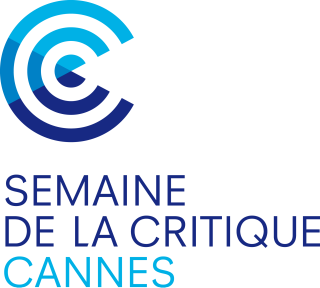
Critics' Week, until 2008 called International Critics' Week, is a parallel section to the Cannes Film Festival organized by the French Syndicate of Cinema Critics. It was created in 1962, after the French Syndicate of Cinema Critics's successful campaign for Shirley Clarke's The Connection to be screened at the 1961 Cannes Film Festival. It is the oldest non-official Cannes sidebar.
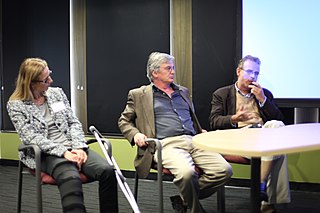
Napoleone Ferrara is an Italian-American molecular biologist who joined University of California, San Diego Moores Cancer Center in 2013 after a career in Northern California at the biotechnology giant Genentech, where he pioneered the development of new treatments for angiogenic diseases such as cancer, age-related macular degeneration (AMD), and diabetic retinopathy. At Genentech, he discovered VEGF—and made the first anti-VEGF antibody—which suppresses growth of a variety of tumors. These findings helped lead to development of the first clinically available angiogenesis inhibitor, bevacizumab (Avastin), which prevents the growth of new blood vessels into a solid tumor and which has become part of standard treatment for a variety of cancers. Ferrara's work led also to the development of ranibizumab (Lucentis), a drug that is highly effective at preventing vision loss in intraocular neovascular disorders.
Philippe Janvier is a French paleontologist, specialising in Palaeozoic vertebrates, who currently works at the Museum National de l’Histoire Naturelle in Paris. He has written several books and scientific papers on Palaeozoic vertebrates and contributed to the Tree of Life phylogeny project. He has led the largest paleontology research group in France, located in Paris. Janvier received the award of the Grand prix scientifique de la Fondation Simone et Cino del Duca on June 11, 2008, for his work. He was a founding member of the Société Française de Systématique. He is currently Associate Editor of the Comptes Rendus Palevol for paleoichthyology. He was elected member of the Académie des Sciences on 18 November 2014.
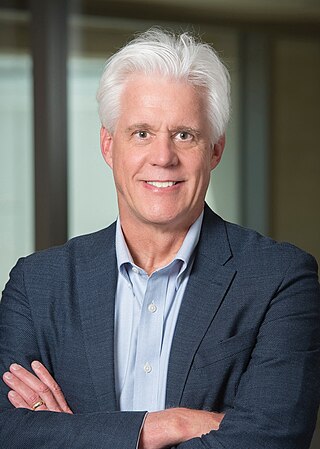
Eric Newell Olson is an American molecular biologist. He is professor and chair of the Department of Molecular Biology at the University of Texas Southwestern Medical Center in Dallas, where he also holds the Robert A. Welch Distinguished Chair in Science, the Annie and Willie Nelson Professorship in Stem Cell Research, and the Pogue Distinguished Chair in Research on Cardiac Birth Defects.

Marcelo Miranda Viana da Silva is a Brazilian mathematician working in dynamical systems theory. He proved the Zorich–Kontsevich conjecture together with Artur Avila.
The Sophie Germain Prize is an annual mathematics prize awarded by the French Academy of Sciences to researchers who have carried out fundamental research in mathematics. The award has been conferred every year since 2003 and comes with a €8000 cash prize. It is named after the French mathematician Sophie Germain.

Gregg Leonard Semenza is a pediatrician and Professor of Genetic Medicine at the Johns Hopkins School of Medicine. He serves as the director of the vascular program at the Institute for Cell Engineering. He is a 2016 recipient of the Albert Lasker Award for Basic Medical Research. He is known for his discovery of HIF-1, which allows cancer cells to adapt to oxygen-poor environments. He shared the 2019 Nobel Prize in Physiology or Medicine for "discoveries of how cells sense and adapt to oxygen availability" with William Kaelin Jr. and Peter J. Ratcliffe. Semenza has had ten research papers retracted due to falsified data.
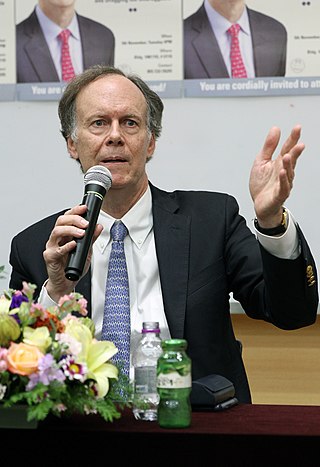
William G. Kaelin Jr. is an American Nobel laureate physician-scientist. He is a professor of medicine at Harvard University and the Dana–Farber Cancer Institute. His laboratory studies tumor suppressor proteins. In 2016, Kaelin received the Albert Lasker Award for Basic Medical Research and the AACR Princess Takamatsu Award. He also won the Nobel Prize in Physiology or Medicine in 2019 along with Peter J. Ratcliffe and Gregg L. Semenza.
Francine NtoumiPh.D., HDR, PvDz, FRCPedin is a Congolese parasitologist specializing in malaria. She was the first African person in charge of the secretariat of the Multilateral Initiative on Malaria (2006-2010). In recent years, she has become involved in research on other infectious diseases, including COVID-19.
Grand Prix scientifique de la Fondation NRJ is an award conferred annually by the Foundation NRJ at the Institut de France. It is awarded in the areas of medical science, particularly neuroscience. Each year the prize has a different theme. The award has a €150,000 prize.
Attilio Maseri OMRI KSG was an Italian academic and physician specialized in cardiology, considered a leading researcher in the field of ischemic heart disease. His patients included Queen Elizabeth II and Pope John Paul II.
The Grand Prix scientifique de la Fondation Louis D. is an award conferred annually by the Louis D. Foundation of the Institut de France. It is awarded for fundamental or applied research in the areas of the science, technology, engineering, and mathematics. Each year the prize has a different theme. The award has a €450,000 prize.

Kathryn J. Moore is a Canadian-born American biomedical scientist and cell biologist. She is the Jean and David Blechman Professor of Cardiology and the founding director of the Cardiovascular Research Center at the New York University Grossman School of Medicine. Moore's research considers the pathogenesis of atherosclerosis, with a focus on the identification of novel therapeutic targets. She was elected Fellow of the National Academy of Sciences in 2021.
Élisabeth Tournier-Lasserve is a French neurologist, medical geneticist, university professor and hospital practitioner in genetics. Together with three colleagues, she was the co-recipient of the Brain Prize in 2019, the world's largest brain research prize.
Elisabetta Dejana is an Italian cell biologist and an expert on regulation of vascular system development. She has published widely and is frequently cited for her work. She has received several important awards. Dejana is a full professor at the University of Milan and has also been appointed full professor at the Department of Immunology, Genetics and Pathology at Uppsala University in Sweden.
References
- 1 2 "Fondation Lefoulon-Delalande". Institut de France. Grands Prix des Fondations. 2013-03-25. Retrieved 2017-12-12.
- ↑ "Historique". Fondation Lefoulon-Delalande Institut de France. 2012-04-12. Retrieved 2017-12-12.
- ↑ "Grand Prix de la Fondation Lefoulon-Delalande 2024". Fondation Lefoulon-Delalande (in French). Retrieved 2024-06-05.
- ↑ "Hobbs awarded Institut de France Grand Prix for cholesterol work". 30 May 2018.
- ↑ "Remise du Grand Prix scientifique 2017". Fondation Lefoulon-Delalande Institut de France. 2017-11-21. Retrieved 2017-12-12.